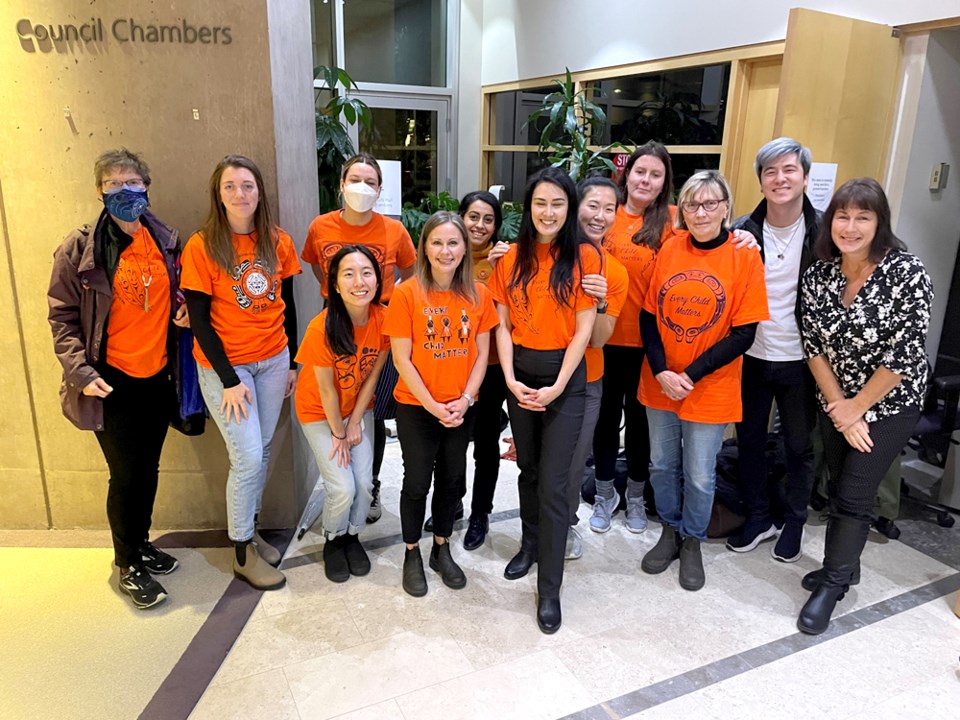This is the second time Richmond city council is asking its staff to look into reconciliation with Indigenous people.
A motion from Coun. Michael Wolfe to create a Truth and Reconciliation policy will be added to an outstanding referral – from June 2021 – to see how the city can recognize First Nations groups and work toward reconciliation.
"I myself am quite confident that most of us are here without the full knowledge of whose lands we're on or whose lands we've been responsible for utilizing and the privileges that have unfortunately come along with these lives that we live," Wolfe said in introducing his motion to city council's Monday committee meeting.
Two teachers, Alisa Magnan and Katherine Myers, from Spul’u’kwuks elementary, spoke at the meeting in support of Wolfe’s motion and presented a petition with more than 600 names asking for a Truth and Reconciliation policy.
They recounted how their school had been vandalized the night before Truth and Reconciliation events were to take place in September whereby all the orange ribbons around the school were torn down and thrown in the garbage.
“Ignorance is at the core of this act and illustrated a problem here in Richmond – the public’s lack of knowledge, understanding and awareness of truth and what those orange ribbons symbolized,” Myers told city council.
When the school’s teachers wanted to direct their families to learn more about Indigenous history after the act of vandalism, there was “little to no information about first peoples of this area” on the city’s website, museum and historical sites, Myers added.
This was their impetus to start the petition, which would support the motion put forward by Wolfe.
The two teachers were asking for more education for city staff and council, saying education needs to include information about decolonization and looking at the policies and practices that have impeded Richmond from implementing the Truth and Reconciliation Commission’s calls to action.
“From truth, policymakers can begin to provide meaningful decolonized education to the public,” Myers said. “Sustained public education is critical in the work of local governments towards reconciliation.”
She pointed out students across Canada are learning about Indigenous history in their schools.
“We need our adult population to learn alongside our children,” she added.
Wolfe’s motion outlines specific actions for the city to take, including meeting with the Musqueam Council, mandatory training in Indigenous-specific racism and decolonization for city staff and council and implementation of the municipally relevant sections of the Truth and Reconciliation Commission’s calls to action and the United Nations Declaration on the Rights of Indigenous Peoples as well as appointing someone to be tasked with addressing Indigenous issues.
The teachers pointed out New Westminster created a reconciliation task force in 2020 and Vancouver created a reconciliation framework in 2014.
Richmond city council has never done a land acknowledgement before its meetings, unlike the Richmond Board of Education.
However, Richmond Mayor Malcolm Brodie has told the News in the past that, because of an on-going lawsuit over a 780-acre parcel of land in south Richmond between the Cowichan and other First Nations and the City of Richmond, it’s not possible to do a land acknowledgement.
The lawsuit has been going on since early 2020 and is not expected to wrap up until next summer, according to David Robbins, one of the lawyers representing the Cowichan Tribes and other First Nations groups who launched the lawsuit already in 2014.


